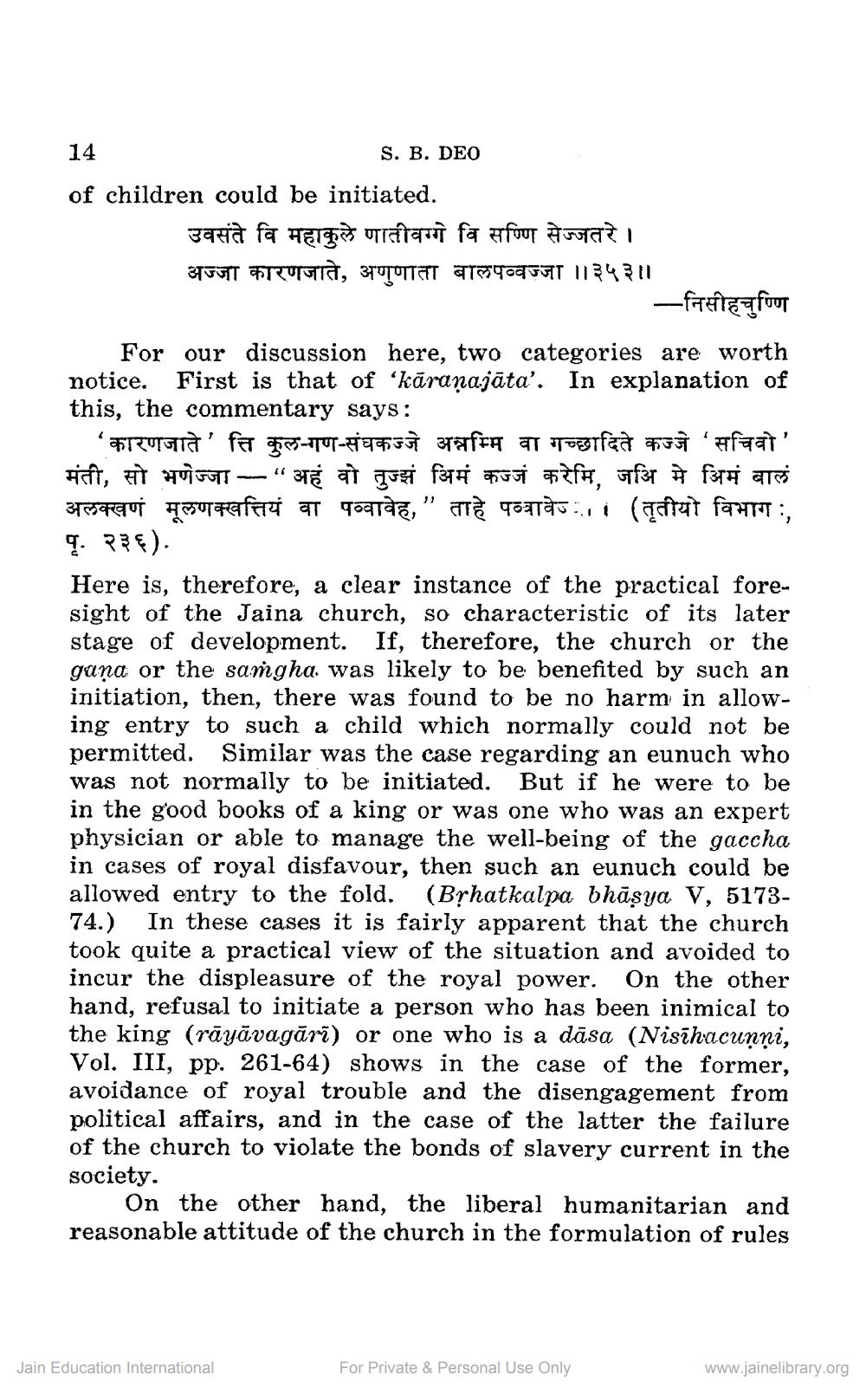________________
14
S. B. DEO
of children could be initiated.
उवसंते वि महाकुले णातीवग्गे वि सण्णि सेज्जतरे। अज्जा कारणजाते, अणुणाता बालपव्वज्जा ॥३५३॥
-निसीहचुण्णि
For our discussion here, two categories are worth notice. First is that of ‘kāraṇajāta'. In explanation of this, the commentary says: _ 'कारणजाते' त्ति कुल-गण-संघकज्जे अन्नम्मि वा गच्छादिते कज्जे 'सचिवो' मंती, सो भणेज्जा--" अहं वो तुझं अिमं कज्जं करेमि, जअि मे अिमं बालं अलक्खणं मूलणक्खत्तियं वा पवावेह,” ताहे पवावेजः।। (तृतीयो विभाग :, q. R3€). Here is, therefore, a clear instance of the practical foresight of the Jaina church, so characteristic of its later stage of development. If, therefore, the church or the gana or the samgha was likely to be benefited by such an initiation, then, there was found to be no harm in allowing entry to such a child which normally could not be permitted. Similar was the case regarding an eunuch who was not normally to be initiated. But if he were to be in the good books of a king or was one who was an expert physician or able to manage the well-being of the gaccha in cases of royal disfavour, then such an eunuch could be allowed entry to the fold. (Brhatkalpa bhāsya V, 517374.) In these cases it is fairly apparent that the church took quite a practical view of the situation and avoided to incur the displeasure of the royal power. On the other hand, refusal to initiate a person who has been inimical to the king (rāyāvagāri) or one who is a dāsa (Nisīhacunni, Vol. III, pp. 261-64) shows in the case of the former, avoidance of royal trouble and the disengagement from political affairs, and in the case of the latter the failure of the church to violate the bonds of slavery current in the society.
On the other hand, the liberal humanitarian and reasonable attitude of the church in the formulation of rules
Jain Education International
For Private & Personal Use Only
www.jainelibrary.org




